New program teaches parents of seriously-ill kids how to cope
CHILDREN’S hospitals across Australia are running a groundbreaking new program — but it’s not to save sick kids. It’s to help their parents cope when their children are diagnosed with a life-threatening illness.
NSW
Don't miss out on the headlines from NSW. Followed categories will be added to My News.
WHEN Jennie Frendo’s son Austin was diagnosed with an aggressive bone cancer, he faced a brutal battle for life — and his mother faced a parent’s worst nightmare.
But while he had 18 rounds of chemotherapy, a seven-hour surgery, 10 blood transfusions and five more minor surgeries, she went through six 90-minute sessions with psychologists.
It was part of the groundbreaking Take A Breath pilot program, which aims to assist parents to handle terrible experiences involving their children without suffering post-traumatic stress disorder.
“I absolutely felt I would lose him,” Mrs Frendo told The Sunday Telegraph.
“I remember we climbed into bed feeling very incapable of taking care of our sick child. This feeling was quite overwhelming and made us feel quite down on ourselves.
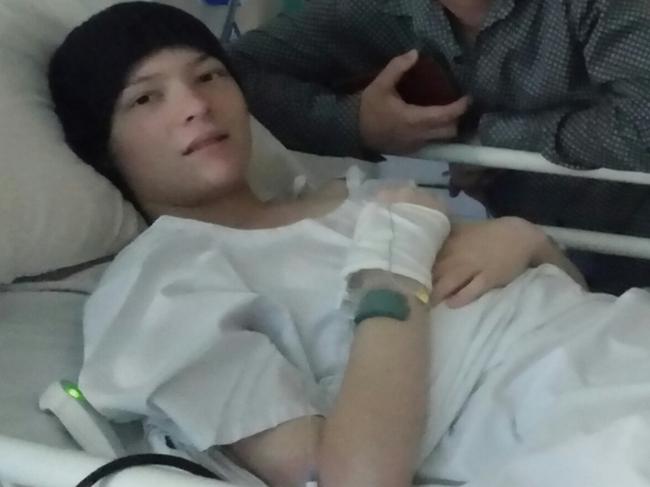
“It was very important for us to portray strength and confidence to Austin.
“The program helped me cope with my feelings. You think about the future and what could happen and you think the worst and how you deal with that can make you crazy.
“The program gave me the tools to cope, and accept what was going on.
“We were taught to notice the feelings, it was like holding a basketball under the water but you need to accept it and let it come to the surface, acknowledge it and then let it pass, that was the tool that worked for me.”
MORE FROM JANE HANSEN
FULL LIST: SUBURBS WITH THE LOWEST VACCINATION RATES
WARNING ISSUED FOR DIET CREATED BY ‘HARMFUL CULT’
Austin is now in remission but his mother needs to employ what she learned each time he
goes through the check-up scans every six months.
“Leading up to those it’s what if? And you see yourself going downhill but, with these tools, we bring ourselves in check,” she said.
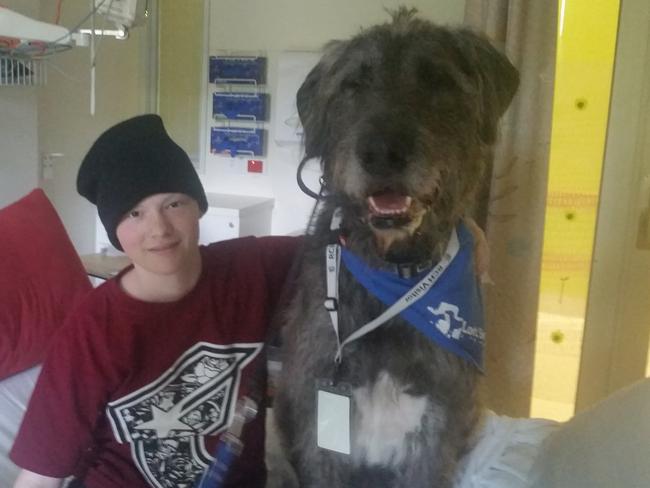
Dr Frank Muscara, from the Murdoch Children’s Research Institute, said parents of children diagnosed with a life-threatening illness experience extremely high levels of distress.
“We developed a program for parents with very sick children designed to help cope with the distress of the experience,” Dr Muscara said.
“It’s not the type of illness that impacts on parental mental health, it is the psychosocial early distress responses and their own beliefs on how the illness will impact.”
Previous research conducted by Dr Muscara in 2015 measured the distress of parents and found at four weeks following a child’s diagnosis of a serious illness, half met the criteria for acute stress disorder and one in four were in the moderate/severe range for depression and anxiety, and one in three for stress.
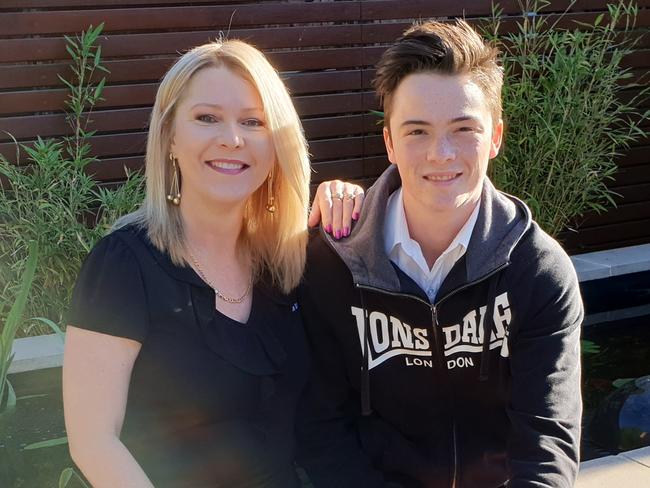
Until now, parents have had to manage on their own, which can result in depression, anxiety disorders and PTSD in the long term.
“There has certainly been a lack of resources for the parenting,” Dr Muscara said.
Research has also shown that a parent response also impacts on the psychological adjustment and recovery of the ill child.
The Take A Breath pilot program helps parents to reduce distress symptoms by following “acceptance committed therapy”, which involves mindfulness strategies around acceptance of the stress, anxiety and fear as a normal part of parenting a very sick child.
“The pilot was successful, we found it was helping reduce the post-traumatic stress symptoms, an improvement in quality of life and how they were functioning in life,” Dr Muscara said.
The hope is funding will become available to roll out the program across all tertiary paediatric hospitals in Australia
“In the long run it will save money and costs to the community. From a health economics perspective it is beneficial to the hospital if parents are coping,” he said.
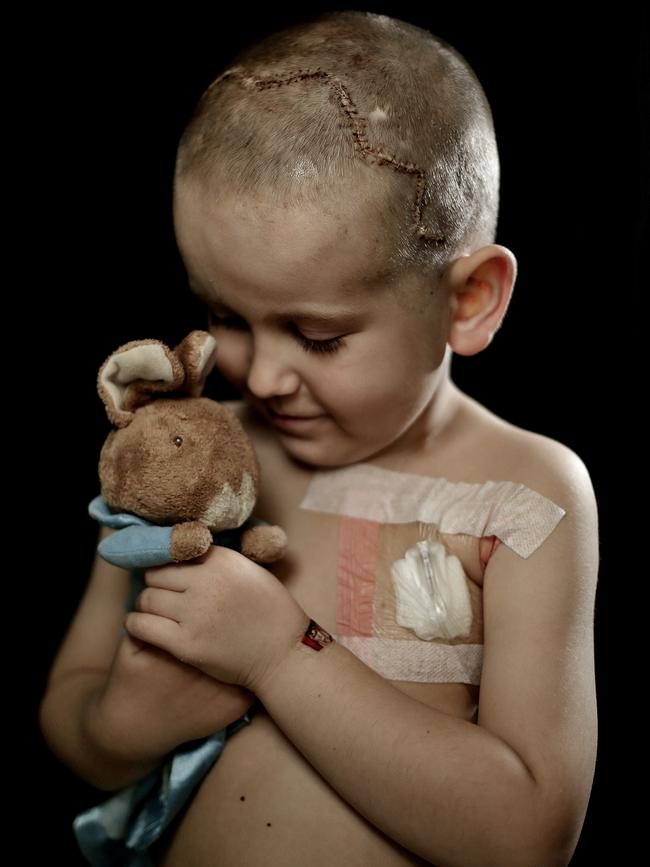
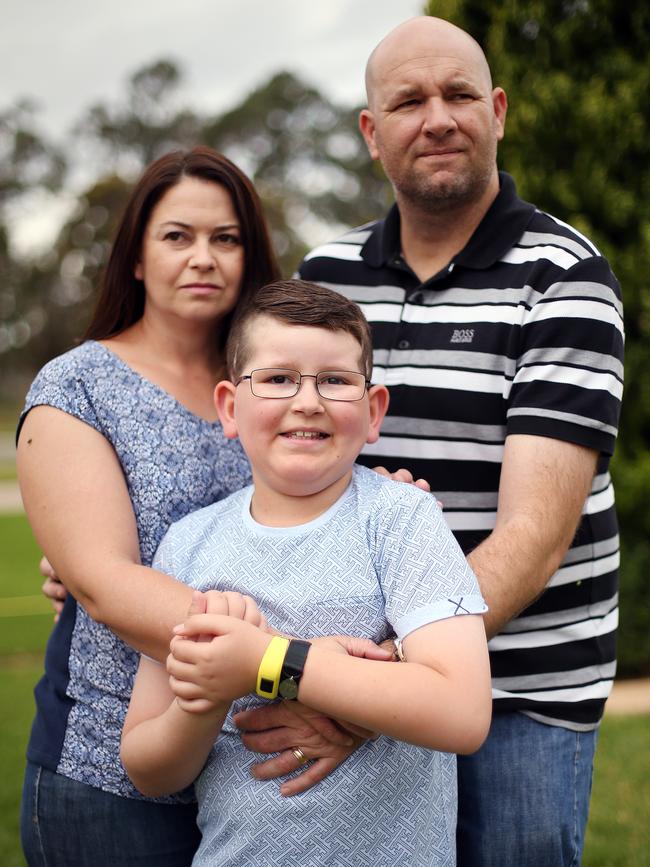
When Emma Carter’s four-year-old son was diagnosed with a brain tumour, she felt like her heart had been ripped out of her chest.
“It’s terrifying, you can hardly breathe. My nerves were shot, I was a mess and there was nothing. No-one asked if we would like to see a counsellor,” she said.
Emma’s son Josh survived, but he suffered a stroke last year and Mrs Carter said the experience has left her permanently on edge.
She can’t talk about it without tears and hopes to see the program put in place to help other mothers like her.
“I’ve been on edge for 10 years. I feel if I become too relaxed something will happen. I don’t think there is enough support for parents going through this,” the St Clair mum said.
